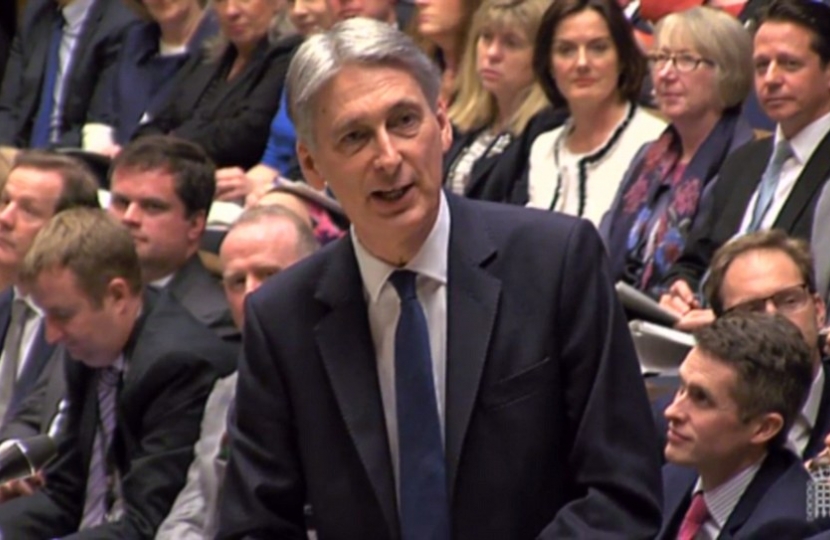
I was in the House of Commons Chamber today to listen to Chancellor Philip Hammond’s delivery of the 2017 Budget.
The Chancellor laid out renewed forecasts, most notably upgraded economic growth in 2018 from 1.4% to 2% and wage rises every year until 2021. Borrowing as a percentage of GDP has fallen from 3.8% of GDP last year to 2.6% this year.
Other notable announcements included £435 million in additional business rates relief, including a £1000 discount for all pubs with a rateable value of less than £100,000; an additional £216 million for school building improvements over the next three years; £500 million a year in additional funding for building technical skills for 16 to 19 year olds; and an additional £2 billion of social care funding. The national living wage will increase to £7.50 in April and the Personal Tax Allowance will rise to £11,500, benefitting 29 million tax payers.
I think this is a steady as she goes Budget that reflects the Chancellor’s reputation for competence and stability. I was particularly pleased to hear that £200 million is being put aside to allow local projects to use private investment to develop fibre broadband infrastructure. There was also good news on transport investment, with the Chancellor announcing a £320 million fund to tackle pinch points on the national road network, and I am hopeful that Worcestershire will be the beneficiary of some of these funds.
One of the most striking numbers mentioned by Philip Hammond in the budget was that Britain’s national debt equates to £62,000 for every household in the country. It is quite clear that at these levels of debt, we are already burdening our children and grandchildren and cannot be carefree with spending commitments. Debt is effectively deferred tax, it has to be paid off at some point.
Overall I believe this was a strong and practical budget.
